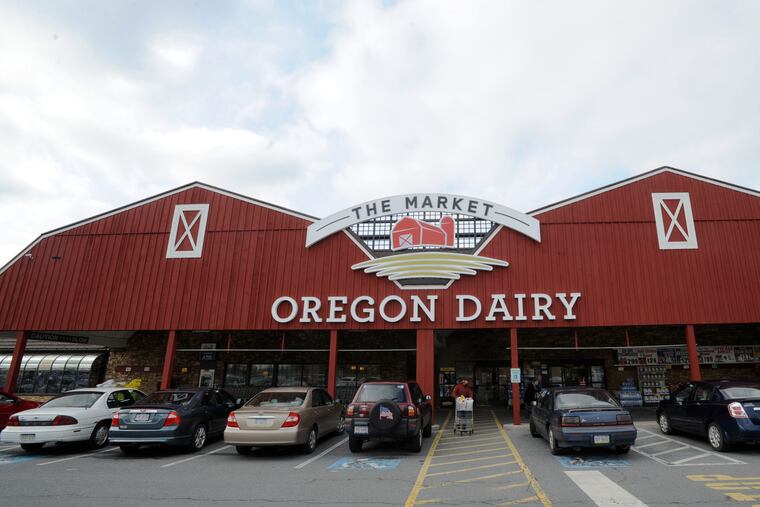As a builder pushed for his 75-acre development in Lancaster County, he and family made political contributions, records show
As Victor Hurst hoped to have his 75-acre Oregon Village development built in Manheim, Pa., he and his family donated nearly $1,000 to two town officials.

Two commissioners who will determine whether a sprawling development can be built in a lush Lancaster County farm town received campaign donations from the developer and his family days after building plans were submitted to the town for review last September, records show.
Manheim Township Board of Commissioners President Albert B. Kling and Commissioner David R. Heck received from developer Victor Hurst and his relatives a $965 donation — paid in four installments of about $240 — to their political action committee, Friends of Heck and Kling. Critics on Friday called for Kling and Heck to recuse themselves from further overseeing the fate of the Hursts’ Manheim development, Oregon Village, though they stopped short of calling the payments bribes.
“It shows a sort of rapport, a willingness for money to change hands," said Mary Haverstick, cofounder of the local citizens’ group Respect Farmland. “You’re talking small, local races where this kind of money can make a difference. It doesn’t pass the optics test or the smell test.”
On Friday, Kling, a Republican incumbent running for reelection, disputed that the donations were improper. He also denied the money could have influenced his decisions on the development.
“You’re barkin’ up the wrong tree," he said in a phone interview. “There’s nothing there. Most of the contributions are pretty small. Not big-money contributions. In fact, $200 doesn’t really do much.”
He went on.
“If somebody’s trying to buy your vote, it’s going to take more than $200. If this was large sums of money, then one could possibly look askance. But it’s not,” he said. "It’s pretty modest stuff. Anybody that contributes to a political campaign — are they buying influence? I think to allege that anybody who contributes to any campaign, that something’s wrong with them, that’s wrong. That’s a freedom-of-speech issue.”
Even so, he said, his PAC would return the money to the Hursts.
The contributions, made on Sept. 12 and 14, were split into four nearly even sums given by Victor and Beverly Hurst, of Newmanstown, Lebanon County; Curvin and Kathy Hurst, of Lancaster; Wilmer and Evelyn Hurst, of Leola, and George and Lois Hurst, of Lititz. Each pair donated $240, with the exception of Victor and Beverly Hurst, who gave an extra five dollars.
By state law, donors who give more than $250 are required to fill out a form disclosing additional personal information, including their occupation and employer’s name.
Victor Hurst, 59, is the owner of Oregon Dairy, an expansive family farm market and restaurant in Lititz. He is also the applicant for Oregon Village, an ambitious development that seeks to build 550 homes, a supermarket, a 300-seat restaurant, a 120-room hotel, a 400-seat banquet hall, and office buildings on 75 acres parallel to Oregon Pike, a busy highway. The development, which would sit on the site of a vacant 17th-century farming village, directly neighbors farmland and has attracted a legion of critics worried about traffic, safety, and change to their treasured rural community.
Kling called the attention to the Hursts’ donations a political smear campaign.
“It’s opponents of the project trying to see how much mud they can throw at the wall," he said. “I consider it not a valid complaint.”
Critics said otherwise.
“By accepting campaign money from the developers and failing to disclose it, Commissioners Kling and Heck have discredited their impartiality in judging the Oregon Village proposal,” Haverstick, of Respect Farmland, said in a statement. “No apology or refund of the money can repair that ethical lapse.”
Heck and the Hursts could not be reached for comment Friday.
The fate of Oregon Village is scheduled to come up for a vote in coming weeks.